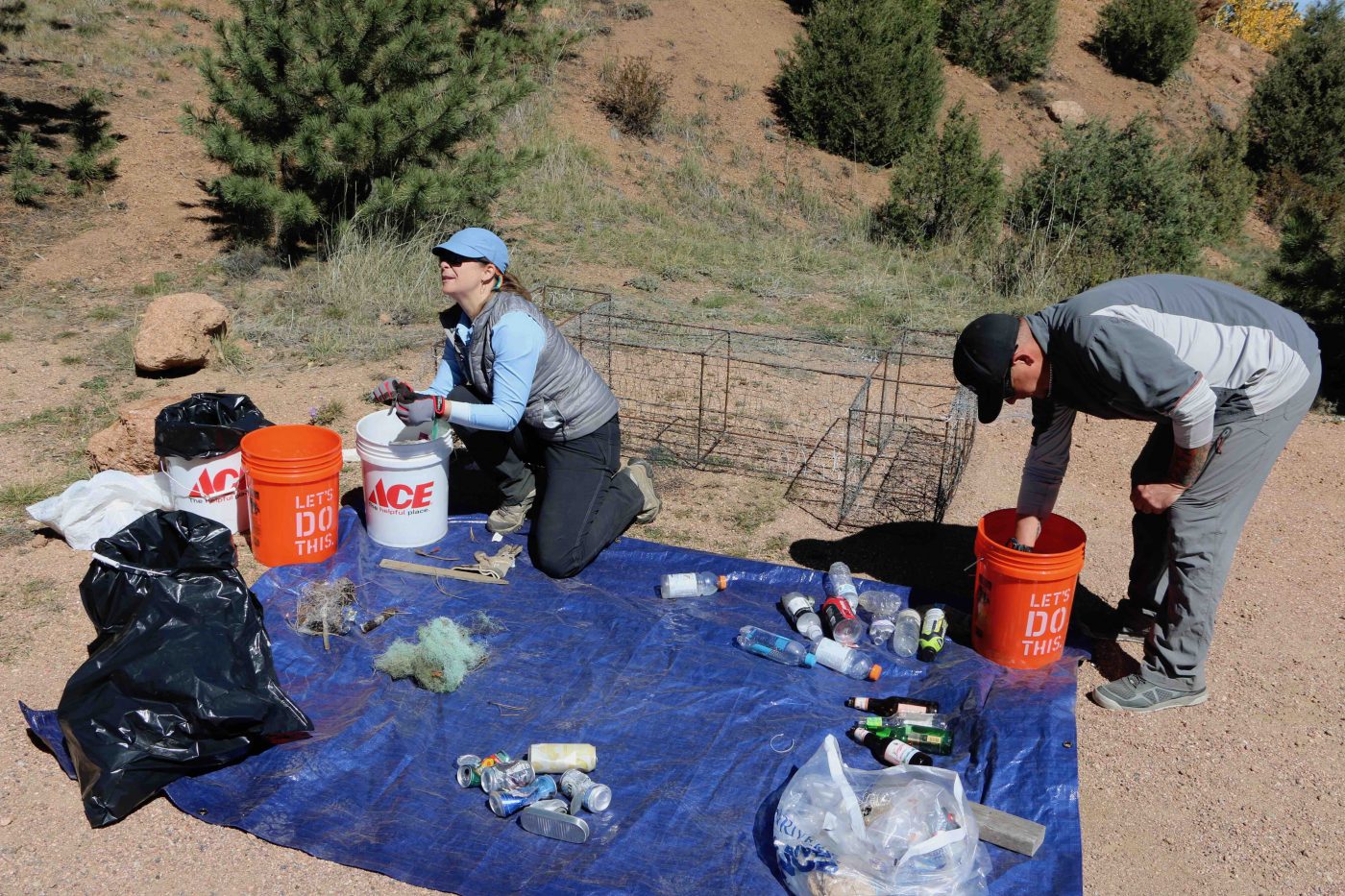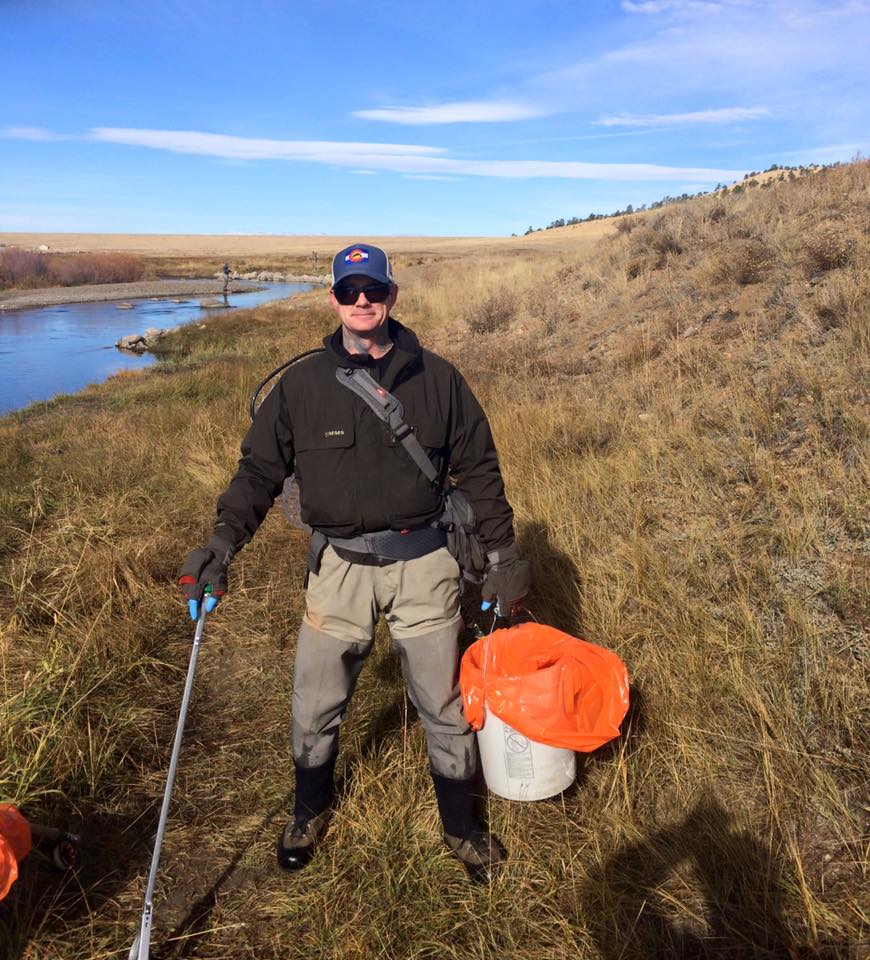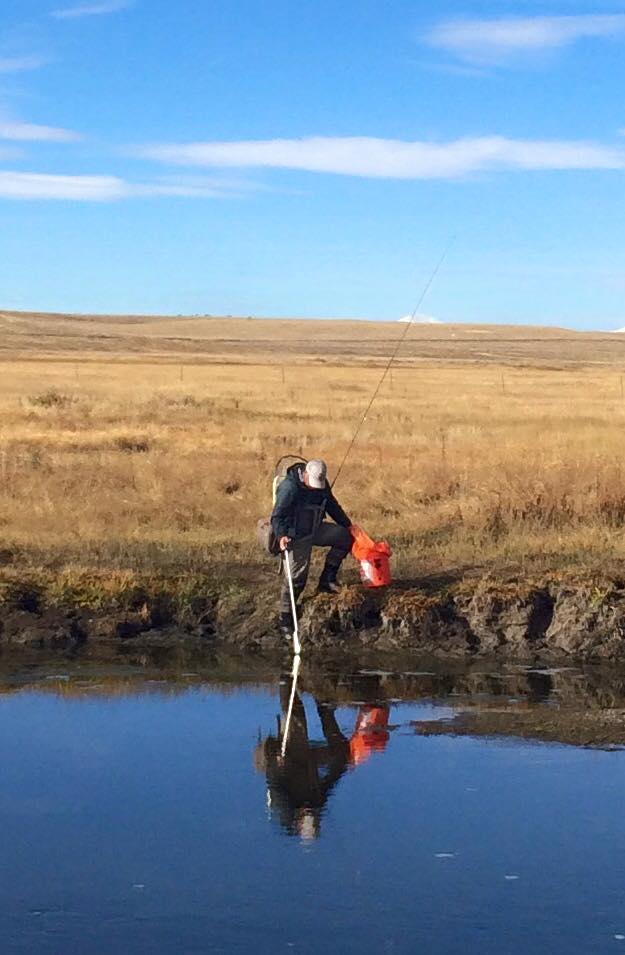Stewardship: Preservation, Conservation, Restoration
How we treat our land, how we build upon it, how we act toward our air and water, in the long run, will tell what kind of people we really are. ~~ Laurance S. Rockefeller
Quoted by Terry Tempest Williams in The Hour of Land: A Personal Topography of America’s National Parks
The theme for Earth Day 2021 echoes one of our guiding principles as a fly shop: Restore Our Earth. We have held on to the importance of stewardship nearly from the Shop’s inception. Our involvement with the Pikes Peak Chapter of Trout Unlimited, for instance, spans many, many years. Over the years, this commitment to giving back has grown. And when it comes to our natural resources, the fisheries with which we interact on a daily basis, we believe in preservation, conservation, and restoration.
Partnerships
Over the years, our partnership with like-minded organizations has grown.
We have worked hard to demonstrate the principles of Leave No Trace.
We have made focused efforts to “Kick Plastic” along with the folks at Costa.
As a member of the American Fly Fishing Trade Association, we support their efforts with the AFFTA fisheries fund. Their mission reads, “Established in 2014, the AFFTA Fisheries Fund works to advance the conservation and stewardship mission of AFFTA–to advocate for healthy fisheries and engage its members and partners to protect and restore fisheries and the habitats they depend on.
Rachel Leinweber, General Manager at Angler’s Covey and AFFTA Board Member, says she is very excited to see what happens with the Fisheries Fund. “AFFTA hired an Executive Director, Whitney Tilt, to focus full-time on the work of the Fund.”
As a Shop, we have teamed up with other fly fishing shops, the U.S. Forest Service, the Division of Parks and Wildlife to be good stewards of our resources. The guides we hire are also expected to demonstrate ethical practices that sustain our resources: respecting the spawn, handling fish in safe catch-and-release techniques, minimizing and even eliminating the use of plastics.
Clean-Ups
We also take more direct action such as hosting and participating in river clean-ups. We hope you will join us at Deckers on Sunday, April 25, for a river clean-up from 9:00 am until noon. Hot dogs will be cooked up for lunch!
Jon Easdon, Director of Services and organizer of the event, says that, “It’s a good idea to give back to the places that give so much for us. Especially on our public waters. Doing river clean-ups is a pretty easy way to do that.”
In terms of keeping our rivers clean, every day should be Earth Day.
Jon Easdon, Director of Services
Rachel agrees with Jon. “The river clean-up is not just a ‘nice-to-do.’ It’s a ‘have to.’” As the Shop’s General Manager, she also says, “All shops, really, have the responsibility. It’s our livelihood.”
Leave No Trace’s Principle #3, “Dispose of Waste Properly,” reinforces this idea: ‘’Pack it in, Pack it out’ is a familiar mantra to seasoned wildland visitors. Any user of recreation lands has a responsibility to clean up before he or she leaves.”
And check out the Leave No Trace Center’s Instagram where the Center is emphasizing “Leave No Trash.” They are encouraging folks to get outside and do some spring cleaning: bring your own cleanup kit, stay safe, have fun with friends, and “get trashy on social” — use #LeaveNoTrash when you post pics of your own cleanup efforts.
Education
Our retail staff members embrace the same ethical practices toward conservation and stewardship. Nathan Coufal, who recently achieved the rank of Eagle Scout, says that “one of the best parts of Earth Day is the message that it spreads.” Nathan is completely in support of the theme for this year, Restore our Earth, but also adds that ,“If you have someone clean up something, but they don’t know how to keep it clean, it’s barely worth it. When you teach someone to keep it clean, they’ll keep it clean.”
Over this past year, with COVID, Rachel has seen that there have been way more people on the river. “And there seems to be more garbage on the river, too.” And she reinforces the “educational approach” that Nathan raises: “We need to continue to educate people on being good stewards, too. We want to be good examples of stewardhip. It’s not people’s ‘fault,’ necessarily.
“It’s about teaching.”






